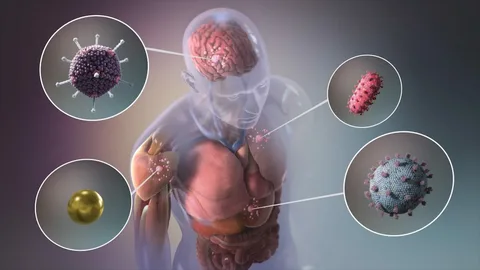In a pioneering study published in Nature Communications, scientists from the Children’s Medical Research Institute (CMRI) have conducted unprecedented gene therapy tests on a whole human liver. The aim of the study is to develop more effective treatments for life-threatening inherited diseases using innovative gene therapies.
Gene therapy is a groundbreaking approach for treating serious genetic diseases, involving the replacement or repair of faulty genes. The most effective delivery systems utilize a harmless virus called adeno-associated virus (AAV), which can transport genetic information into human cells efficiently.
One of the major challenges in developing gene therapies is the lack of effective preclinical models that can accurately simulate human physiological conditions. To address this issue, CMRI’s Translational Vectorology Research Unit collaborated with a team from the Royal Prince Alfred Hospital to establish a normothermic liver perfusion system. This system enables the preservation of human livers outside the body at body temperature, allowing for advanced research and testing of AAV-based therapeutics.
The utilization of the whole human liver for testing gene therapies represents a significant advancement in the field. Associate Professor Leszek Lisowski, the senior author of the study, highlighted the importance of this development in evaluating the function of gene therapeutics directly in the target organ—the liver. This approach provides valuable insights into how new therapeutics would impact a major organ, leading to more efficient and targeted treatments.
The current generation of viral vectors used in gene therapy delivery to the liver has limitations, often requiring high doses to achieve clinical benefits. By testing gene therapies on whole human livers, researchers can better assess the efficacy and potential side effects of new therapeutics. This innovative model not only enhances the evaluation of novel treatments but also facilitates the development of advanced viral vectors for future therapies.
The study expands the range of preclinical models available for liver-directed vector studies, reducing the reliance on animal testing. This groundbreaking research brings us closer to developing more efficient gene therapies for diseases with limited or no existing treatments. The advanced human liver model not only revolutionizes the evaluation of novel therapeutics but also enables a more accurate estimation of effective doses and identification of potential toxicities.
In conclusion, the successful gene therapy tests on a whole human liver represent a significant milestone in advancing the field of gene therapy. This innovative approach holds great promise for developing more targeted and effective treatments for a wide range of inherited diseases.
*Note:
1. Source: Coherent Market Insights, Public sources, Desk research
2. We have leveraged AI tools to mine information and compile it

